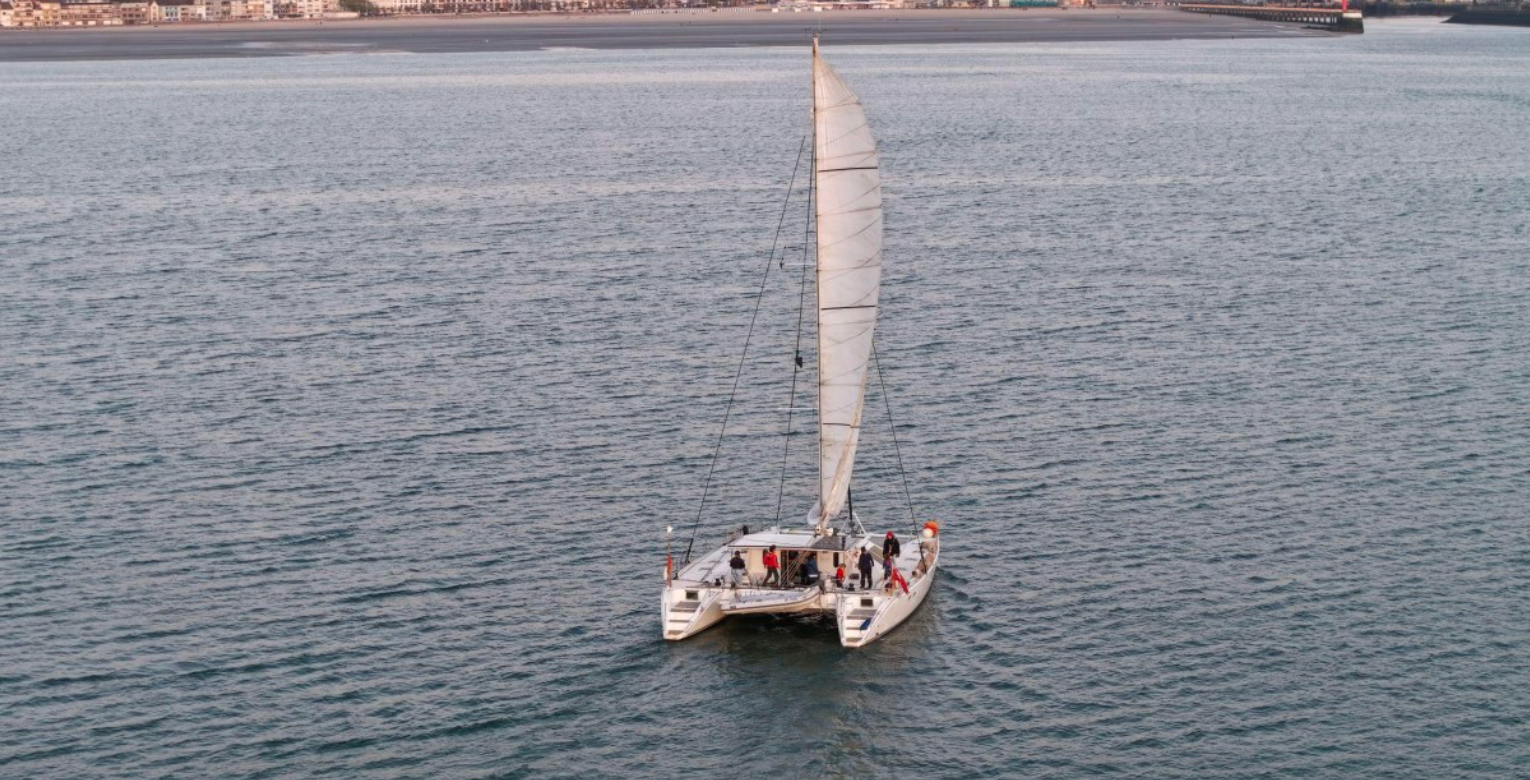ARTICLE AD BOX
There are many ways to cross the Channel from the UK to France – including a range of ferry routes, Eurostar passenger trains and Eurotunnel vehicle shuttles.
But this summer travellers will be able to choose one more: regular services on a sailing catamaran from Dover to the northern French port of Boulogne.
SailLink is an enterprise launched by Andrew Simons, 49. He has been telling The Independent’s daily travel podcast about the new service.
“We link a journey with a sailing experience. This idea comes from my own needs just to travel across the Channel. What I wanted was to arrive at a port by train or with my bike and be able to get on a ferry and go across, and have a great time going across and have the experience of the sea.
“I found that very difficult to link those preferences. When you have these sort of requirements, then if it doesn't exist, you start looking into it and that's where we get to today.”
The vessel is a 17-metre (57 foot) sailing catamaran named Echoes.
“We can get all our passengers on, and their luggage and their bikes,” said Mr Simons.
“The boat stays nice and flat. So it's not like on a single-hull vessel where it cants as soon as you put the sails up. It has a nice turn of speed. We have a nice, big cockpit area covered where the passengers can be seated.”
The payload is limited to a dozen travellers. The UK government says: “A ship carrying more than 12 passengers by definition is a passenger ship, and is subject to enhanced constructional and operational requirements to ensure the safety of the passengers.”
Ferries cross from Dover to Calais (a similar distance to Boulogne) in about 90 minutes. The catamaran typically takes about three-and-a-half hours once under way. But the town centre to town centre journey, and the need only to “turn up to the marina, walk down a pontoon, and then you're on the vessel” offsets the time penalty.
“That's far shorter than the ferry boarding,” said the business founder.
“And then at the other side, it's pretty much the same. You get off, walk up a pontoon, and you're in the town. We're town to town, we're not big industrial ferry terminal to ferry terminal.”
All the border formalities are conducted at the jetty.
The one-way fare is £75. Young people aged 17-27 pay £60, with those aged five to 16 charged £40. The bicycle charge is £10.
Cycle tourists are an important part of the target market. “For them, particularly, there's very few options,” says Mr Simons. “You can go on the ferry, but they're not at all designed for you alongside the lorries and the cars. They're floating bits of motorway, really.
Mr Simons is also hoping the service will appeal to hikers, including those on the Canterbury-to-Rome pilgrimage.
“We're trying to to target them, offer them something really great. It's really a valuable part of their time away.”
Many passengers could be deterred by the prospect of sailing in a relatively small vessel across the Strait of Dover, the busiest shipping route in the world – threading between supertankers and giant container ships.
“There's a lot of space and there's a lot of surveillance from the side of the coastguard, from the ships themselves, from us,” says Mr Simons.
“We can see all the tracks of those ships, so we can plan our route, and there are very clear rules to adhere to on going across. It's not like getting to the edge of a motorway as a pedestrian and thinking, ‘How am I going to get across here?’ It's a very strictly governed thing.”

Unlike the ferries, the frequency of departures is determined by the tides.
“We use the natural forces of wind and tide. Our service is designed to use those most effectively. We use the ebb tide to go from Dover to Boulogne, and that carries us a little on that big conveyor belt of the sea. And we use the flood tide to come back.”
Over the next six weeks there are 13 departures each way, predominantly on Fridays and Sundays. At present, the final sailing is scheduled for Friday 5 September.
“We're a fairly small boat once you get out there,” Mr Simon says. “But who's to say in the future? This little first attempt is about proving a concept that we can work with those fantastic naturally prevailing forces which exist ideally for going across the Channel by wind in both directions. So we could scale this up. A bigger boat, more suited to the job, could be obviously running longer.”
Listen to Andrew Simons on The Independent’s daily travel podcast









 English (US) ·
English (US) ·